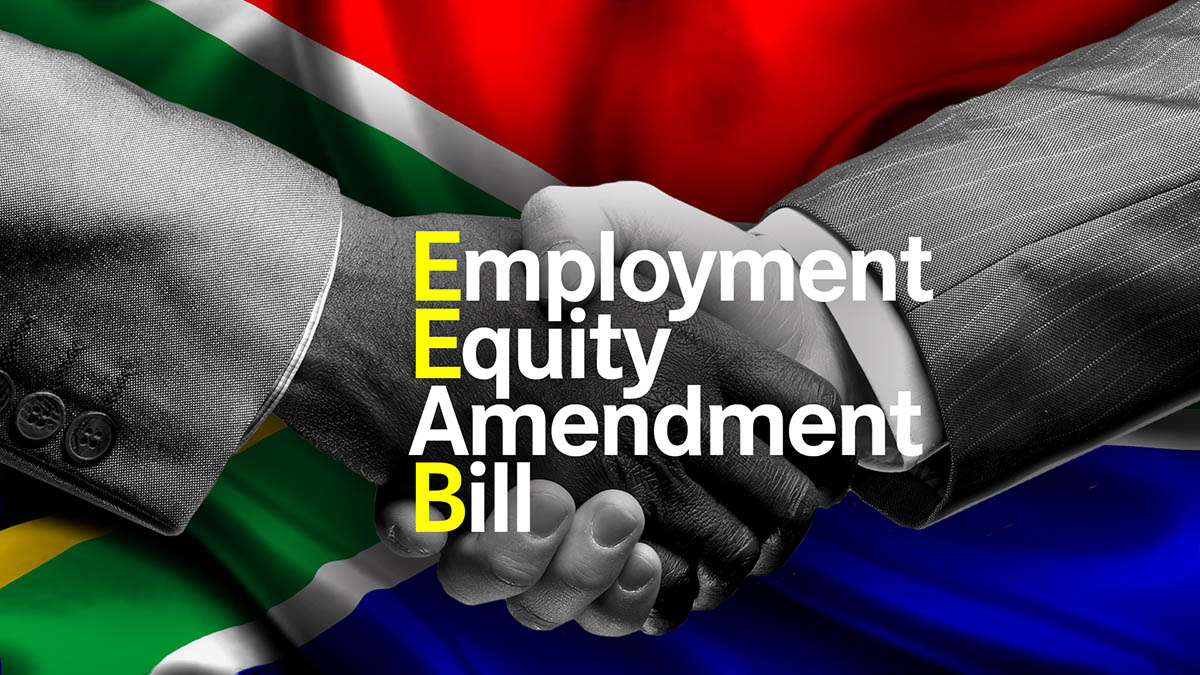The Department of Labour has published the Employment Equity Amendment Bill and the proposed amendments to the Regulations to the Employment Equity Act, and is asking for your comment.
The Bill aims to tighten race targets in the workplace, speed up transformation and empower the labour minister to establish numerical race targets for particular sectors.
You are invited to object or support the Bill by providing comment below. Should you be unsure, please read the live comments, media, summary or documents below. Closing date is midnight 21 November 2018.
3762 active citizens had a say
- The Amendment Bill introduces Section 53 of the Employment Equity Act (EEA), which was never promulgated since the inception of the Act in 1998.
The South African Human Rights Commission (SAHRC) recently found that South Africa’s affirmative action and employment equity policies were unconstitutional.
The SAHRC specifically took issue with the Employment Equity Act’s definition of designated groups and South Africa’s system of data disaggregation.
Government’s failure to measure the impact of various affirmative action measures on the basis of need is also a failure of international legal conventions, it said.
In a statement released in August, the SAHRC said:
- The definition of designated groups as contained in the Employment Equity Act, and the current system of disaggregation of data could give rise to new imbalances in the labour market.
- Affirmative action measures must be targeted at groups and individuals who are subject to unfair discrimination, to eventually achieve substantive equality and a society based on non-racialism and non-sexism.
- Decisions based on insufficiently disaggregated data fail to target persons who have been disadvantaged by unfair discrimination.
- Without first taking the characteristics of groups into account, varying degrees of disadvantage and the possible intersectionality of multiple forms of discrimination faced by members of vaguely categorised groups cannot be identified.
- The Act must be amended to target more nuanced groups on the basis of need and should take into account social and economic indicators.
- Once the objective of affirmative action, namely substantive equality, is achieved, temporary special measures should cease.
Add your comment now.
Error: Contact form not found.
A copy of your message will be sent to you along with an automated proof of receipt. Check your junk mail folder if you can’t find it.
LIVE COMMENT FEED
Displaying newest 5 comments sent.
MEDIA LINKS
- BusinessDay – Employment equity bill seeks to set targets in sectors
- MyBroadband – Race targets to become stricter in South Africa
- PoliticsWeb – EE Amendment Bill 2018: Race target enforcement to be tightened up
- BusinessTech – Government to implement major Employment Equity changes to speed up transformation
DOWNLOAD DOCUMENTS
- Employment Equity Amendment Bill
- proposed amendments to the Regulations to the Employment Equity Act
- SAHRC Equality Report
- Commission for Employment Equity Annual Report 2017/18
Important to note; this is not a petition but is the first step in an essential Participative Democracy process protected under the SA Constitution. Your comment is immediately sent as a unique email to the designated government representative and must, by law, be acknowledged and considered. Had this been a petition, all comments would be seen as a single collective submission.
By using this service you ensure an accurate record is held by civil society (on our encrypted database) so government cannot dispute facts or figures. This process forms a solid foundation for a legal case should the necessity arise.
A WORD FROM A SPONSOR



